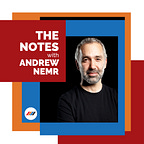With every shift in culture there are things that get lost. New things garner more attention. It is normal. Yet, some of the things that get lost warrant remembering. For over twenty years I’ve been carrying the question of loss and remembrance as it applies to oral traditions. Considering tap dance specifically, Tap Legacy™ has been the place where I learned the challenges faced by oral traditions in a market-based digital culture. It is also where I’ve found ways to navigate the very same culture for the sake of the oral tradition.
The only way this was possible for me was because I had a personal connection with a generation of tap dancers that practiced before the advent of digital markets and platforms. The greatest shift and challenge to the tap dancers I learned from was from stage to television and film. Some made the shift well, others did not.
The tap dancers I learned from had an experience of music, performance, the market, and the craft that were all categorically different than mine. Their experience would be completely foreign to the generation of dancers that have come after me.
Imagine a time when every music venue played jazz. Imagine every live concert including a big band, singer, comic, and tap dance act. Post Modern Jukebox is the closest thing we have today, and they’re missing the comic.
But that’s the thing. I suspect there is 1% of the people who would see a PMJ concert and miss the comic. The only reason I would miss it, is because I knew folks who told me what the experience could have been. They new what had been lost and gave me a vision for it. I in turn have had the responsibility to do what I can to reimagine that vision and bring it to life. But that’s just tap dancing.
What about culture in general. Whenever I teach my oral tradition workshop, I talk about the intergenerational tension that arises when teenagers begin to listen to different kinds of music than their parents. The change in musical preferences is not simply aesthetic. It is a signal that the teenager is differentiating themselves. I’m no longer like you. I’m like me. Their musical tastes normally coincide with connecting with a particular friend group, fashion choices, and new language.
In a market culture that serves up new music and fashion faster than a new generation can be born it’s easy for the teen to disregard their parent’s music, fashion, and language. Add the ideal of self-expression, and the impact of parents on their children, other than to facilitate their self-expression, is diminished. Gained in this is potential of the child – experimentation, discovery, wonder. Lost in this are the ways in which families grow intergenerationally. The teen throws out their parents influence while differentiating, never to reconnect. The parents feel no responsibility to the teen once the teen “grows up.”
Without a sense of what could be a different way, this disconnection between generations becomes the norm. It becomes reinforced in any systematized teaching on parental expectations, teen life studies, and more. It is what people expect to happen, prepare for, and ultimately become a part of creating.
What is lost?
What is lost is a pattern of life in which the teen is supported through the differentiating process but their parents. What is lost is an organization of the family in which the teen always feels safe to return home. What is lost is an organization in which whole families interact as deeply connected units supporting the mutual growth of their children.
I know the example of a family is not always the best, as not everyone comes from families of origin that are models of loving environments. But just because our initial model had flaws (some severe), don’t mean we break the mechanism. In fact, where the family is disregarded, there is a loss of one of the best mechanisms for the sharing, learning, and experiencing of intimate, personal, charitable, love. Where the idea of a family is regarded, albeit not present, there is a way of working towards re-instituting the kind of good relationships found in families – with considerable benefit.
There are two considerations here. First is for the person, like me in Tap Dance Land, who has experienced the shift and knows what has been lost. Second is for the person who hasn’t experienced the shift, but has a sense of something missing. Those who are captured by the current climate will likely remain captured until one of the two considerations cross their path.
For the person who knows that something has been lost, I offer you an opportunity. You have been gifted with a jewel – a way of life that you know is possible and have seen to be good. The jewel – a pearl of great price, maybe – is now yours to share with others. Do not give it away right away. Rather, share it generously and observe the response of others. Some will walk by this glorious jewel and not understand the excitement you have in holding it and sharing it. Others will take some curiosity, but eventually consider the jewel out of their own reach, saying, “Not for me.” Still others will ask question after question. Where did you find it? How did you polish it? What does it feel like to carry it? How much does it weigh?
For each question that is asked and answered, the curious person is given a clearer vision of what they are bearing witness to, what it might be like to have it themselves, and how they might get a jewel of their own. This is what it is like to plant a vision in the heart of another soul. To shape the pursuit of that person towards a different kind of life – one that isn’t visible to them. You get to do this.
For the person who has a sense that something is missing, you get to journey. I beg you, do not settle. Contend with the disturbance in your heart that says, “Something isn’t quite right here.” Maybe it’s obvious. Maybe it’s quirky. Maybe it only shows up in particular scenarios. Do not give up on the gift of the question. Your seeking will reap great rewards. You may happen upon someone who knows what has been lost. You may be the one to discover that a simple shift in one direction or another is all that may be needed to completely transform your life.
In your seeking, you might discover fellow seekers. There will be others who are carrying similar questions. Those who in their daily lives are also seeking for that something they feel is missing. Generously compare notes. Encourage one another. The journey of a seeker can be lonesome – your question is yours after all. But I can promise you that the experience of discovery that is awaiting you if you endure is like nothing you will ever have experienced before. It will be akin to a naked encounter with reality – enlivening, paradigm-shifting, life changing.
In every generation there is a particular thing that feels lost. In every generation there is a particular challenge to the cosmic good that requires expression through humanity for life. If we know or are seeking to find what this is, we are working towards the good. We are doing what we can to bring the hidden nature of love to the forefront.











